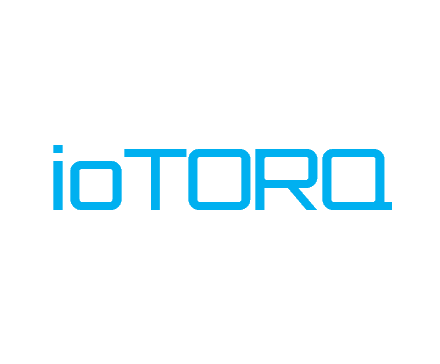Description

Kiran ERP for Manufacturing

RamBase
Comprehensive Overview: Kiran ERP for Manufacturing vs RamBase
Overview of Kiran ERP for Manufacturing:
a) Primary Functions and Target Markets:
Kiran ERP is designed to cater to the manufacturing sector, focusing on providing tools that enhance operational efficiency, inventory management, and supply chain coordination. Key functions typically include:
- Production Planning and Control: Scheduling, execution, and monitoring of manufacturing processes.
- Inventory Management: Tracking of raw materials and finished goods to optimize inventory levels.
- Procurement Management: Streamlining purchasing processes to ensure timely availability of materials.
- Quality Management: Ensuring the production of high-quality products through rigorous standards and practices.
- Financial Management: Handling of accounting, budgeting, and financial reporting tasks.
- Human Resources Management: Facilitating employee management, payroll, and recruitment tasks.
The target market for Kiran ERP generally includes small to medium-sized manufacturing companies seeking to streamline operations and improve productivity.
b) Market Share and User Base:
Kiran ERP typically has a localized or niche market presence, primarily focusing on specific regions or industries. While comprehensive statistics on its user base and market share might not be readily available, it’s reasonable to assume it maintains a smaller footprint compared to global ERP giants. Its user base is typically comprised of companies looking for more customized or industry-specific solutions.
c) Key Differentiating Factors:
- Customization and Flexibility: Greater adaptability to meet specific manufacturing processes and requirements.
- Cost-Effectiveness: Typically appealing to smaller enterprises due to lower implementation and maintenance costs.
- Ease of Implementation: Often easier to deploy and integrate compared to complex global ERPs.
Overview of RamBase:
a) Primary Functions and Target Markets:
RamBase is a cloud-based ERP system with a strong focus on manufacturing and wholesale distribution sectors. Key functions include:
- Integrated Supply Chain Management: Provides visibility across the entire supply chain.
- Production Management: Advanced tools for managing manufacturing operations, from resource planning to production execution.
- Sales and Customer Management: Tools to handle customer relationships and sales processes.
- Finance and Accounting: Comprehensive financial management features, including invoicing, budgeting, and reporting.
- Service Management: Ensures effective management of after-sales services and maintenance.
The target market primarily consists of medium to large enterprises looking for a scalable and comprehensive cloud-based solution.
b) Market Share and User Base:
RamBase serves a more global market compared to localized ERPs like Kiran. It's gaining traction, particularly in Europe, due to the increasing demand for cloud-based ERP solutions. While not on the scale of ERP giants like SAP or Oracle, RamBase has a growing user base among midsize manufacturers and distributors.
c) Key Differentiating Factors:
- Cloud-Based Technology: Offers the advantages of scalability, reduced IT overhead, and remote accessibility.
- End-to-End Visibility: Robust features that provide transparency across the entire operation, a crucial aspect for multinational enterprises.
- Industry-Specific Features: Tailored functionalities that cater to specific needs in manufacturing and wholesale distribution sectors.
- Innovation and Updates: Regular updates and innovations leveraging cloud technologies to remain competitive in the marketplace.
Comparison:
In terms of market share, RamBase likely has a broader reach due to its cloud-based model and emphasis on scalability. Kiran ERP might maintain a stronger position in niche markets or specific geographic regions. Kiran can be appealing for smaller firms looking for cost-effective, customizable solutions, whereas RamBase is attractive for mid to large enterprises prioritizing comprehensive functionality and cloud integration. Key differentials focus on technology (cloud-based vs. potentially on-premise or hybrid for Kiran) and scale (localized vs. broader international reach).
Contact Info

Year founded :
Not Available
Not Available
Not Available
Not Available
Not Available

Year founded :
1992
+47 52 76 34 10
Not Available
Norway
http://www.linkedin.com/company/rambase
Feature Similarity Breakdown: Kiran ERP for Manufacturing, RamBase
When comparing Kiran ERP for Manufacturing and RamBase, it is important to understand their core functionalities and target industries as both are designed to cater to manufacturing needs. Here's a breakdown of their feature similarities and distinctions:
a) Core Features in Common:
-
Manufacturing Management:
- Both Kiran ERP and RamBase offer comprehensive manufacturing management capabilities, including production planning, scheduling, and execution.
-
Inventory Management:
- They include robust inventory management systems to track raw materials, work-in-progress, and finished goods.
-
Supply Chain Management:
- Both ERPs provide supply chain management tools to optimize procurement, supplier management, and logistics.
-
Financial Management:
- Core financial modules, including accounting, budgeting, and financial reporting, are integral parts of both solutions.
-
Quality Control:
- They have quality control features to ensure products meet required standards before reaching the customer.
-
Sales and Order Management:
- Both platforms offer sales order processing, invoicing, and customer relationship management to support end-to-end sales operations.
-
Analytics and Reporting:
- Built-in analytics and reporting tools to provide insights into business performance and facilitate data-driven decision-making.
b) User Interfaces Comparison:
-
Kiran ERP:
- Known for its user-friendly interface with intuitive navigation.
- Offers customization options that can suit different user roles within manufacturing operations.
- The design might be more traditional, focusing on functionality over aesthetics.
-
RamBase:
- Provides a cloud-based interface, accessible from anywhere with an internet connection.
- The UI is often highlighted for being more modern and responsive, incorporating real-time data and dashboards.
- Emphasizes a cohesive design that integrates seamlessly with other cloud services and tools.
c) Unique Features:
-
Kiran ERP:
- Localization and Customizations: Kiran ERP might offer extensive localization options and customizations, making it adaptable for different regions and specific industry requirements.
- Industry-Specific Modules: Potentially provides more tailored modules for niche manufacturing processes.
-
RamBase:
- Industry 4.0 Integration: Known for its focus on digitization and Industry 4.0, offering features that support IoT integration and smart manufacturing.
- Cloud-Native Architecture: Unlike many traditional ERP systems, RamBase is specifically built for the cloud, which may offer advantages in terms of scalability and maintenance.
Both Kiran ERP and RamBase serve the manufacturing sector with comprehensive solutions, but they can cater to different operational needs based on their unique features and user experience. When choosing between them, businesses should consider their specific requirements, existing IT infrastructure, and long-term scalability goals.
Features

Not Available

Not Available
Best Fit Use Cases: Kiran ERP for Manufacturing, RamBase
Kiran ERP for Manufacturing and RamBase cater to different business needs within the manufacturing sector, each with its own strengths and optimal use cases. Here's a breakdown of their best fit use cases:
Kiran ERP for Manufacturing
a) Ideal Businesses and Projects:
-
Small to Mid-Sized Manufacturers: Kiran ERP is particularly well-suited for small to medium-sized manufacturing businesses that seek a comprehensive and cost-effective ERP solution. It provides essential functionalities without the complexity and overhead associated with larger, more expensive ERP systems.
-
Discrete Manufacturing: Companies involved in discrete manufacturing, such as machinery, electronics, or automotive parts manufacturers, can benefit significantly from Kiran ERP's capabilities. The solution typically offers modules for inventory management, production planning, and shop floor control.
-
Customization-Focused Operations: Businesses that require a high degree of customization in their manufacturing processes may find Kiran ERP advantageous due to its flexibility and adaptability to specific business needs.
b) Preferred Scenarios for RamBase:
-
Cloud-Based Needs: RamBase is a cloud-native ERP solution, making it ideal for businesses that prefer cloud deployment for its scalability, reliability, and remote accessibility features.
-
Vertical Specialization: RamBase is designed to serve specific verticals such as high-tech electronics and mechanical manufacturing. Companies in these sectors would benefit from its industry-specific features and capabilities.
-
Rapid Deployment and Implementation: Organizations that require a swift ERP implementation process could benefit from RamBase due to its predefined industry templates and processes, which allow for quicker setup times compared to heavily customized solutions.
Industry Verticals and Company Sizes
Kiran ERP for Manufacturing:
-
Industry Verticals: This ERP is versatile for various manufacturing industries including automotive, electronics, and consumer goods. It focuses on core manufacturing processes, making it adaptable to different industry needs.
-
Company Sizes: Best suited for small to mid-sized enterprises that require robust ERP functionalities without the complexities that larger enterprises might need. It can support companies that are scaling and moving from manual processes to digital management.
RamBase:
-
Industry Verticals: Specializes in high-tech electronics, mechanical manufacturing, and similar sectors where cloud-native solutions offer distinct advantages such as real-time data access and industry-specific process support.
-
Company Sizes: While it can cater to small and medium businesses, RamBase's cloud-based nature and industry focus also make it suitable for larger enterprises within its specialized verticals. It is ideal for businesses looking to expand and integrate operations seamlessly across multiple locations.
In summary, Kiran ERP is best for smaller manufacturers needing a flexible, cost-effective solution, particularly in discrete manufacturing, whereas RamBase is suited for companies in high-tech and mechanical manufacturing looking for cloud-based, industry-specific functionalities with rapid deployment.
Pricing

Pricing Not Available

Pricing Not Available
Metrics History
Metrics History
Comparing undefined across companies
Conclusion & Final Verdict: Kiran ERP for Manufacturing vs RamBase
When evaluating Kiran ERP for Manufacturing and RamBase, it's essential to consider various factors such as functionality, scalability, ease of use, industry-specific features, customer support, and pricing. Here's a comprehensive conclusion and final verdict:
a) Best Overall Value
Best Overall Value: The best overall value depends on the specific requirements and priorities of the manufacturing business. However, RamBase tends to offer a more comprehensive set of features tailored to larger manufacturing enterprises with more complex needs and integration requirements. Meanwhile, Kiran ERP for Manufacturing might appeal to small to mid-sized manufacturers looking for an affordable, user-friendly solution with essential functionality.
b) Pros and Cons
Kiran ERP for Manufacturing
-
Pros:
- Affordability: Generally more cost-effective, making it suitable for smaller businesses with budget constraints.
- Ease of Use: User-friendly interface that facilitates quick onboarding and minimal training requirements.
- Tailored Features: Designed specifically for manufacturing industries, offering relevant tools and functionalities.
-
Cons:
- Limited Scalability: May not be as scalable for larger enterprises or those experiencing rapid growth.
- Functionality Gaps: Might lack some advanced features needed for complex manufacturing processes and broader supply chain management.
- Integration Challenges: Potential limitations in integration with other systems and software.
RamBase
-
Pros:
- Comprehensive Features: Extensive functionality covers all aspects of manufacturing, distribution, and supply chain management.
- Scalability: Highly scalable, suitable for medium to large enterprises with evolving needs.
- Cloud-Based: Offers seamless updates, accessibility, and integration capabilities with other cloud services.
-
Cons:
- Cost: Higher initial and ongoing costs may not be justified for smaller businesses with basic needs.
- Complexity: More complex interface and operations may require additional training and a longer implementation period.
- Overwhelming Features for Small Businesses: Some features may be unnecessary for small operations, leading to underutilization.
c) Recommendations for Users
-
Assess Business Size and Complexity: Small to mid-sized manufacturers might find Kiran ERP more aligned with their budget and basic operational needs. Larger manufacturers or those with complex, evolving processes may benefit more from the extensive features of RamBase.
-
Prioritize Key Functionalities: Identify critical features unique to your manufacturing processes and ensure the chosen ERP sufficiently supports these. RamBase might have an edge with advanced functionality and integrations, while Kiran offers straightforward manufacturing solutions.
-
Consider Long-term Growth Plans: Companies anticipating growth or diversification might prefer RamBase, given its scalability and comprehensive suite. Those with steady operations might find Kiran's straightforward approach more efficient and cost-effective.
-
Review Support and Community Feedback: Investigate the level of customer support offered by both systems and seek feedback from other manufacturing businesses to understand potential challenges and successes.
In conclusion, both Kiran ERP for Manufacturing and RamBase offer distinct advantages tailored to different business needs. The decision should stem from a detailed analysis of your organization's specific needs, growth trajectory, and budgetary constraints.
Add to compare
Add similar companies




